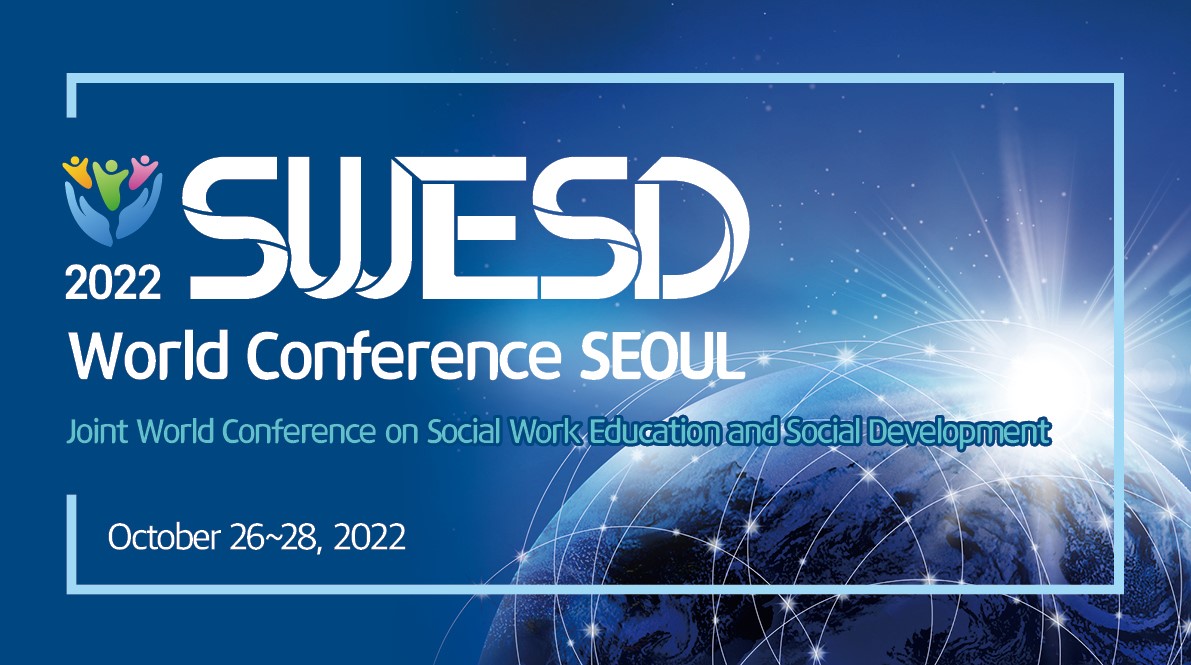The SWESD 2022 Organizing Committee is pleased to announce the Call for Abstracts for the JOINT WORLD CONFERENCE ON SOCIAL WORK EDUCATION AND SOCIAL DEVELOPMENT: REDEFINING SOCIAL POLICY AND SOCIAL WORK PRACTICE IN A POST-PANDEMIC SOCIETY: SOCIAL WELFARE PROGRAMS AND SOCIAL WORK EDUCATION AT A CROSSROADS.
Authors are warmly invited to submit abstracts for Oral, Symposium, Workshop, and Poster presentations and invite both traditional papers and innovative contributions of various kinds.
Each registered author may submit a maximum of 2 abstracts. Authors need to be clear to indicate which type of presentation their abstracts will fit in.
PRESENTATION TYPES:
1. Oral Presentation
2. Oral in Workshop – Oral presentation with audience interaction.
3. Oral in Symposium – Oral presentation with 2 or more co-authors per abstract. The abstract should describe the title, the main purpose of the symposium and 2 or more presentation contents, each with the name of the author. ONLY the coordinator of the symposium must submit the abstract entering all the names of the authors.
4. Poster
Language of presentation: The abstract should be presented in English. All abstracts will be reviewed by the International Scientific Committee who will grade them for inclusion at the Conference. Submissions will be selected through a peer review panel based on scientific merit and relevance of findings.
Call for Abstracts: March 2022
Call for Abstracts closes: 30th June 2022
Notification of Abstract acceptance: 31st July 2022
Submission of Presentation Material closes: 31th August 2022
Details will be announced on the conference’s official website shortly, and you may submit your abstracts via the official website. The official website will be opened to the public in April.
If there is any inquiry, please contact at swesd2022@gmail.com
The themes and sub-themes are as follows:
Groups in vulnerable situations: the quest for social protection
– Older persons
– Persons with disabilities
– Children and adolescents
– Women and girls
– Migrants, refugees and asylum-seekers
– Homeless people
– People in rural areas
Social Work Education and Empowerment
– Human rights and social justice
– Building core competencies, newer skills and global standards for social work education
– Ethical principles in the digital era
– Sustainable development and social work education
Social Work Practice in times of crises
– Hunger and Food Insecurity
– Reaching those most likely to be left behind
– Applying psycho-social knowledge and skills
– Job crisis, informal and vulnerable employment
– Public Health crisis, Welfare and Vulnerable Populations
– Addressing climate change and strengthening disaster preparedness
Social Transformation Community Engagement and SDGs
– Changing roles of families and households
– Innovations in Community interventions
– Contribution of Social Work towards fulfilment of SDGs
Digitalization and ICTs in Social Development and social work education
– Closing the digital divide for education and service delivery
– Key opportunities and risks of the digital transformation for people’s well-being
– The use of ICTs in professional practice and its consequences for the future work of social workers
– Digitalisation of Social Work and importance of Human Relationships
New Opportunities and Challenges in Post-COVID Period
– Overcoming neo-liberal legacy
– Towards Universal Social Protection
– Policy initiatives to address inequalities
– Youth and intergenerational issues
– Role of civil society organisations
– Building back better: Looking for ways forward



